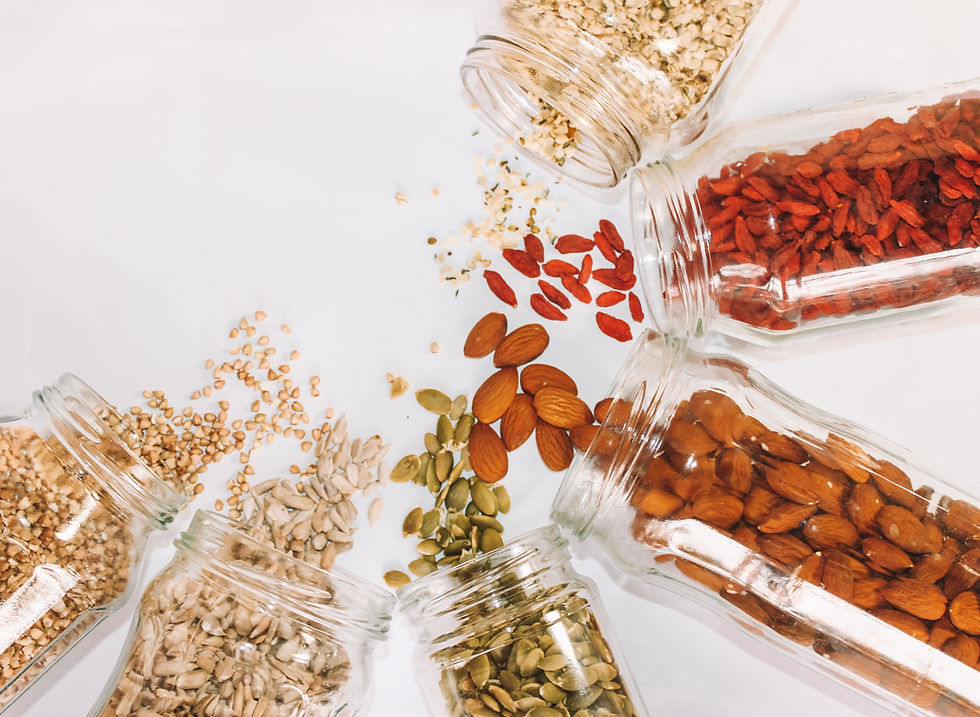All About Fibre
- courtneyellisnutri
- Jun 20, 2024
- 2 min read
What is dietary fibre?
It’s the fibre that comes from the plant foods (eg. fruit, vegetables, grains etc.) we eat. The cell walls of these plant foods are resistant to digestion from the enzymes made by the human body.
BUT our gut bacteria are designed to break down fibre! 🦠
Because of this, fibre is digested in our large intestine as it travels through the start of our digestive tract undigested. When it reaches the large intestine, our gut microbiome breaks it down. During this process, beneficial 'by-products' called metabolites are produced. It is for this reason that dietary fibre directly influences the types of bacteria we have in our gut microbiome.
If you feed the bacteria that digest fibre you are supporting their survival over unhelpful bacteria. This process is important as it helps our body to have a bowel motion. Different types of fibre affect bowel motions and gut health in different ways.

Types of dietary fibre:
SOLUBLE: dissolves in water, making a gel-like or softer poo. This can slow the movement of food through the large bowel. Soluble fibre can help with constipation as it can help soften your poo. It can also help with diarrhoea as it can slow down and thicken your poo.
Bananas, apples, oranges, pears, berries
Oats and oat bran
Legumes (e.g. chickpeas)
Eggplant, peas, avocado, sweet p otato, carrot, turnip
Psyllium husk and other products such as Metamucil and Benefiber
INSOLUBLE: does not dissolve in water and adds bulk to the stool. This can speed up the movement of stool through the bowel and can help with constipation.
Fruit (skin and seeds have the most fibre)
Vegetables (skin and seeds)
Wholegrain products e.g. breads, pasta, brown rice, quinoa, barley
Nuts and seeds e.g. flaxseed, chia
Wheat and rice bran
RESISTANCE STARCH: is a fibre that feeds our good gut bacteria, also known as prebiotics.
Cooked and cooled potato, rice, quinoa, and pasta
Unripe bananas
Legumes
Oats
What is it beneficial for?
🔸gut motility - helps keep us regular!
🔸weight control - helps with feeling full and keeping us fuller for longer
🔸reduce blood cholesterol - promotes cholesterol to be excreted as waste
🔸improved blood sugar control - allows your body to respond to insulin more efficiently (this helps with stabilising blood sugar levels and slows sugar absorption)
🔸supports our gut bacteria and improves the production of metabolites that have positive impacts on overall health and well-being
🔸 protective against chronic diseases, largely colon cancer
Requirements:
We should all be aiming for more than 25g/day (30g/d for males). However, this recommendation is on the lower side and many Australians are not meeting this. Studies have found that aiming for more than 30g is beneficial for health.
-Courtney




Comments